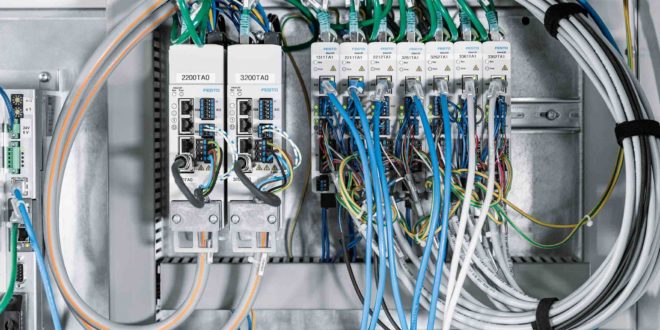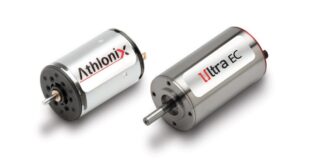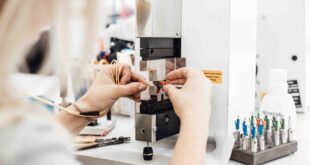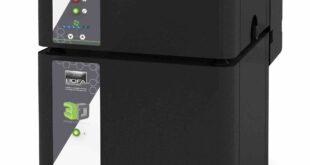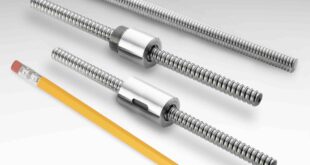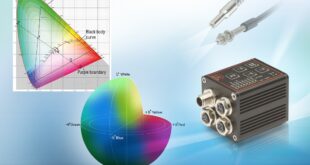Protective masks have been in short supply in these times of coronavirus. An innovative containerised production facility that enables businesses and healthcare organisations to produce their own masks to order could solve the problem.
Developed in just six weeks by Mikron with engineering support from Festo, the mini factory uses a scalable system that can produce 50-100 face masks per minute.
“Normally you’d need six months for systems of this size, but this is time we don’t have during the current coronavirus pandemic,” explains Nils Rödel, General Manager of Mikron Berlin. “So, 20 of our designers and fitters spent a week concentrating fully on this project and came up with a 3D model as the basis for this scalable system.”
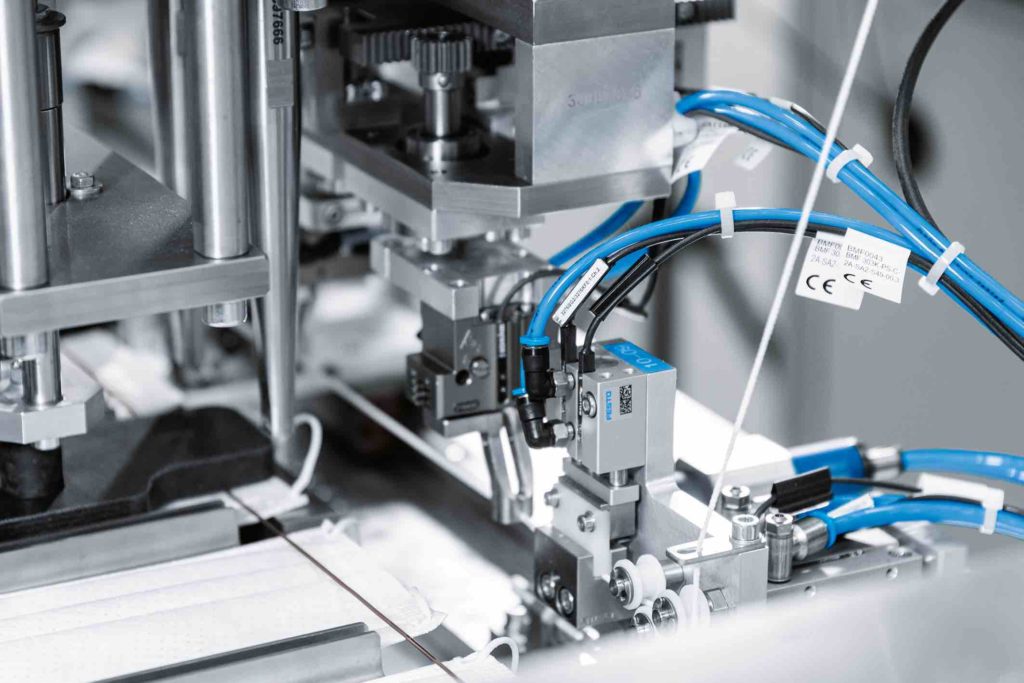
The project was accelerated by the engineering support provided by Festo.
“Even in this period of crisis, the electric and pneumatic components we needed were available quickly. The fact that integrating and commissioning the electric drive solutions in the system as well as connecting them to the Beckhoff PLC was so quick and easy was also helpful,” says Rödel, adding: “The Festo Automation Suite software made integrating and commissioning the CMMT servo drive child’s play, and we were able to quickly make decisions about the correct sizes.”
Mini factory, big benefits
In the modern world, factories are often sited far from the people who actually need the products they manufacture and relay on complex supply and distribution chains – increasingly spanning different continents. This has been precisely the problem during the coronavirus pandemic: when demand skyrocketed, global supply chains were revealed to be less robust than expected – and prone to corruption.
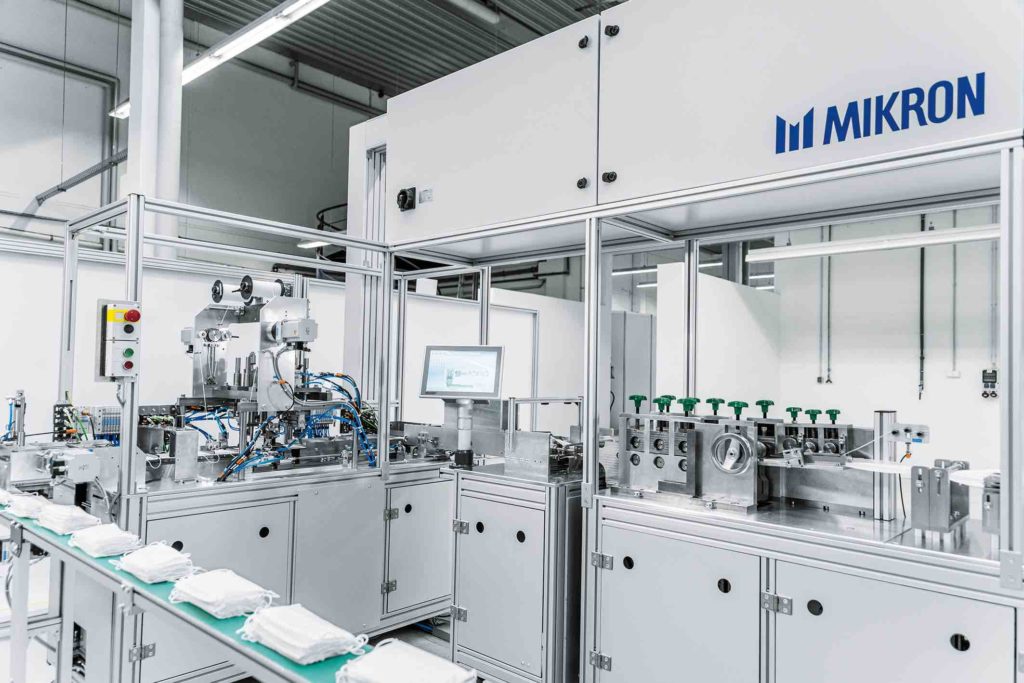
When it comes to medical protective equipment, the failure of a delivery can cost human lives. Mikron’s mini factory closes the gap between point of manufacture and point of consumption, eliminates the need for transport and so makes the end product cheaper.
The beauty of Mikron’s system is that it fits in a 20-foot shipping container, which can also act as a clean room. This makes it compact enough to be sited adjacent to a hospital, shopping centre or school.
The integrated air-conditioning system with air purification filters means that production is even possible in places with high risk of viral contamination.
Depending on the raw materials, the system can operate autonomously for more than two hours. This reduces the number of people required and consequently the risk of infection.
So, the mini factory can also produce protective masks in remote areas or even in crisis zones where meeting hygiene standards is more challenging.
In effect, it would be possible to produce two million protective mouth-nose masks each month with just one system.
The masks are based on meltblown non-woven fabric which is made up of many layers of fine fibres, and thus filter out even the smallest particles such as bacteria and viruses from the air being breathed in.
Depending on how it is configured, the system can make packs of ten masks or individual ones, shrink-wrapped for cleanliness and in printed bags and boxes if required.
“This involves docking an automated packaging station developed by our project partner pi4_robotics GmbH to the scalable system,” says Rödel.
Electric and pneumatic components from Festo ensure the reliable transport of the parts or perform clamping tasks at every stage of the process, from the three-layer unwinding station, to the shaping and folding station for the non-woven fabric, on to the ultrasonic sealing station for sealing the edges and finally attaching the ear loops.
Festo’s CMMT servo drives and EMMT electric drives are used in the application, since they can be easily connected to PLCs from other manufacturers such as Beckhoff, Siemens and Rockwell.
The pneumatic components installed in the system are from Festo’s core product range, and include the ADN compact cylinder, the DFM guided drive and the DSNU round cylinder. All these components are attractively priced, in stock worldwide and available within 24 hours.
The Festo core product range provided the ability to build systems for producing masks reliably within the shortest possible time.
The pneumatic drives are actuated by MPA manifold mounted solenoid valves. MS6-SV-E safety valves ensure that safety-critical system components are exhausted and de-energised as quickly as possible in the event of an emergency stop.
Thanks to its international production and sales network, products from Festo are quickly available in 176 countries and enable systems to be built decentrally at locations around the world. This is entirely in keeping with the global open-source approach of the Carola project, which provided the impetus for designing the system.
The face mask production system needed to be as easy to commission as it is to build.
“The current travel restrictions make it extremely difficult for commissioning technicians to get to where the systems are to be built,” says Rödel. So Mikron came up with a digitised solution: “We use the HoloLens, which enables commissioning to be done virtually using an interactive 3D projection.”
 Engineer News Network The ultimate online news and information resource for today’s engineer
Engineer News Network The ultimate online news and information resource for today’s engineer
